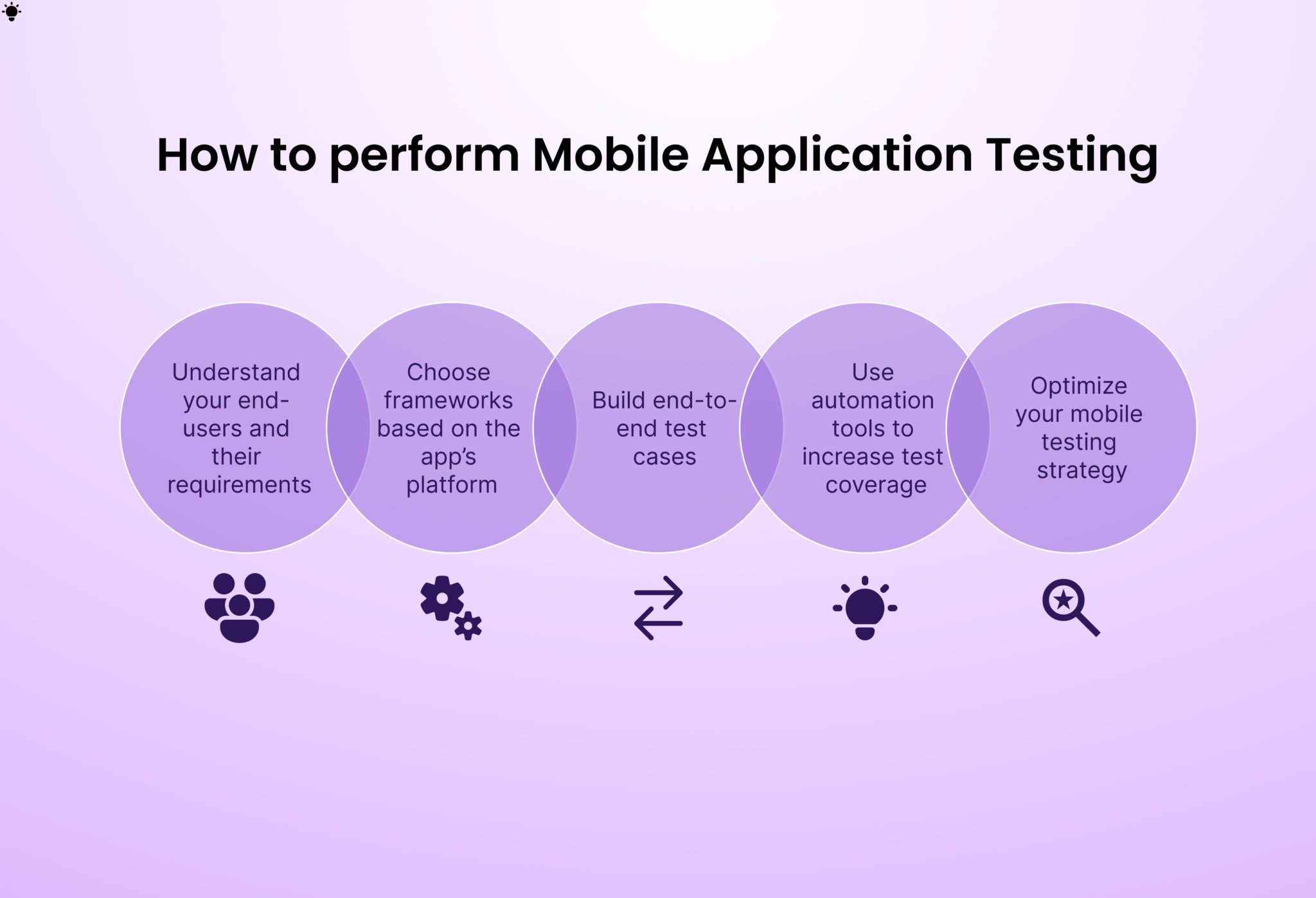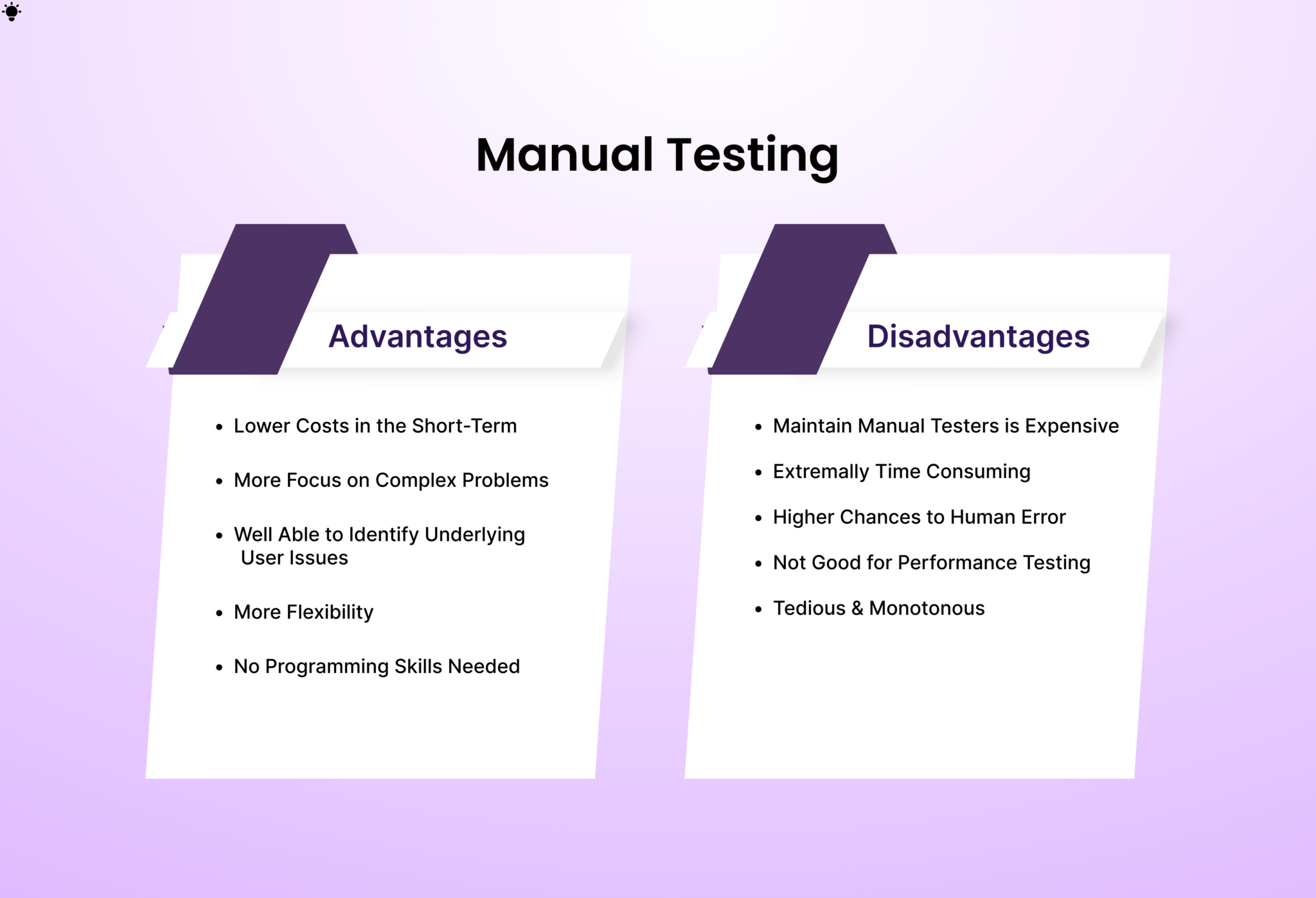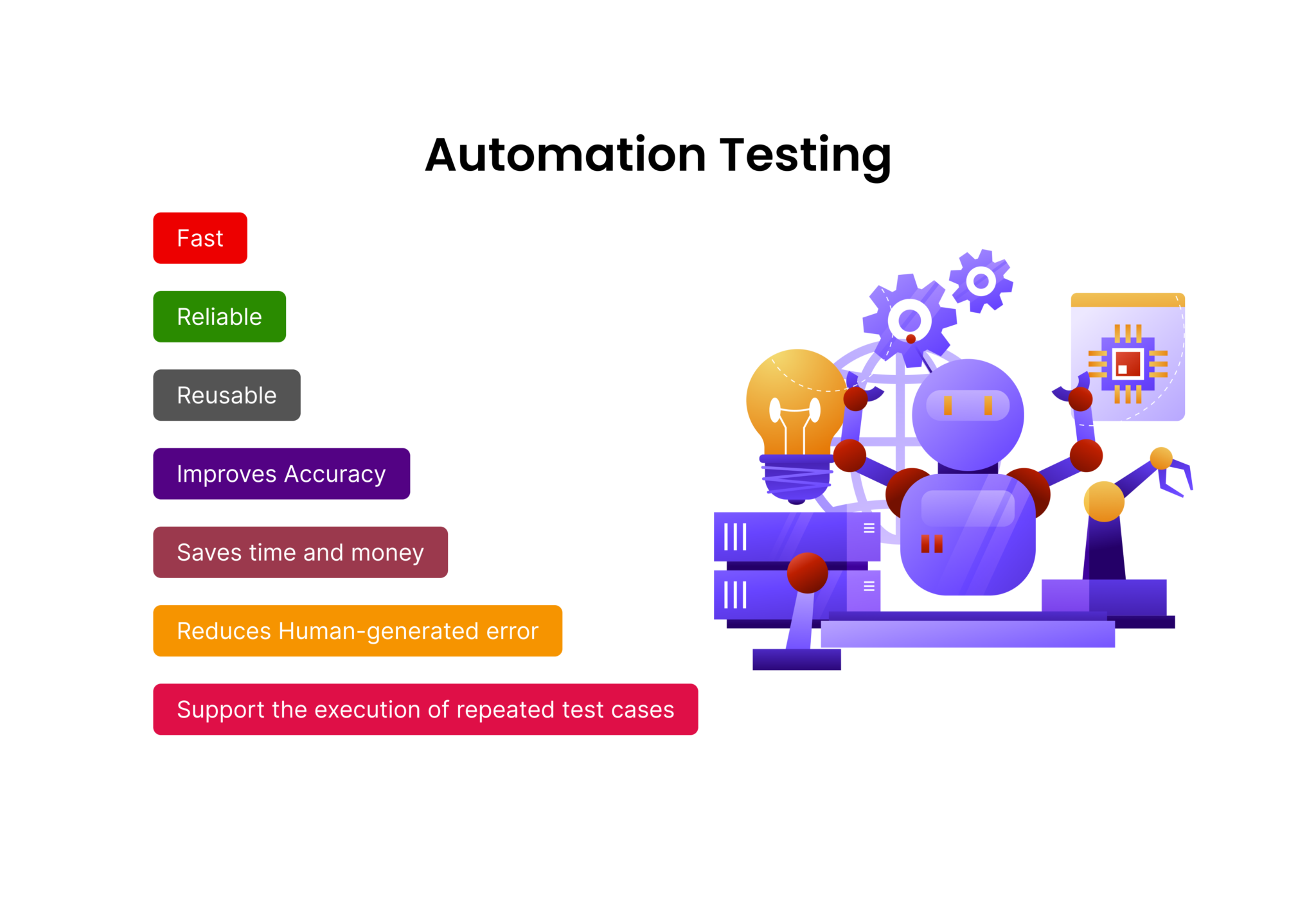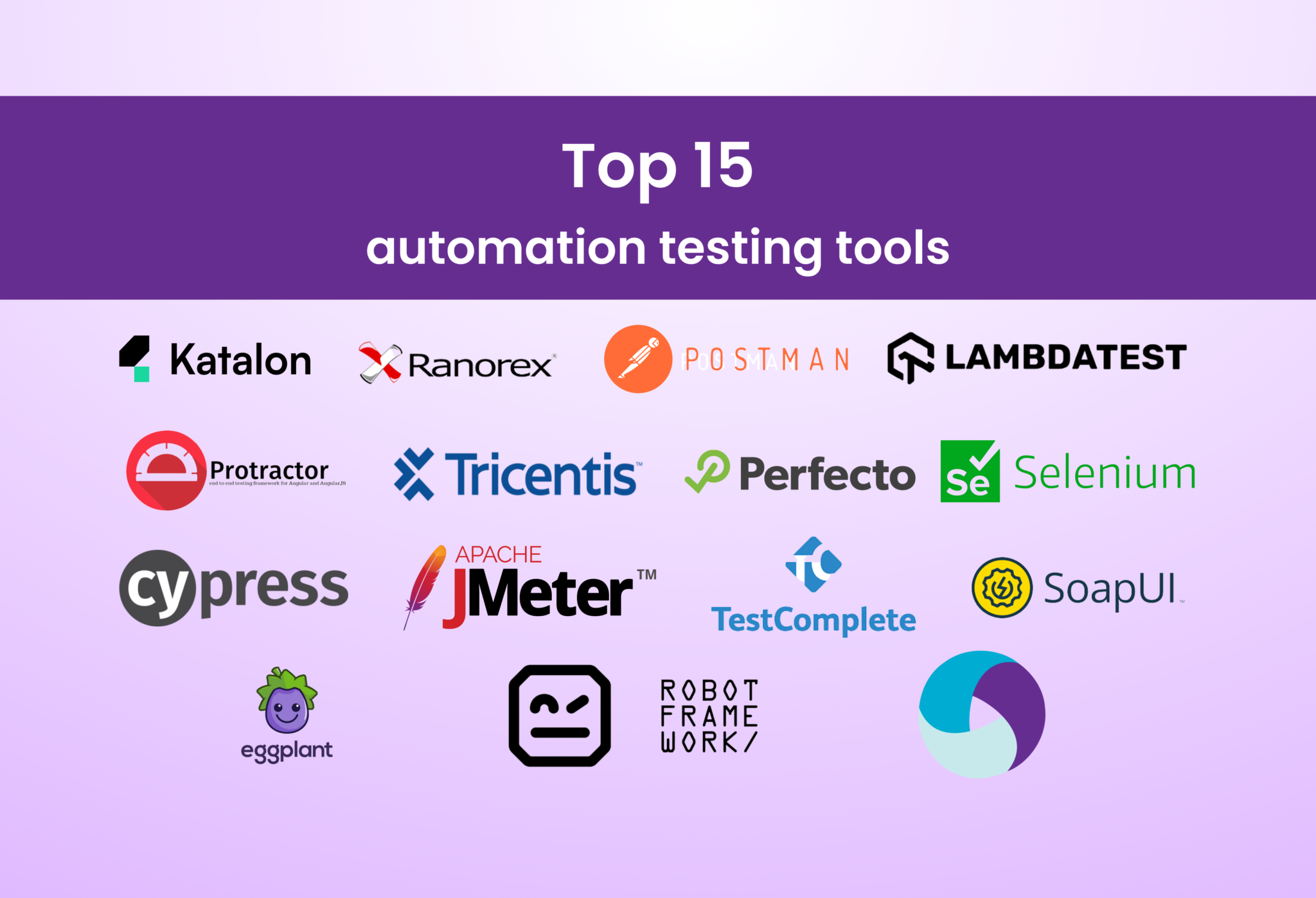What is the importance of test automation for mobile testing? Most firms have already implemented test automation for mobile testing. So why haven’t you? Read this post to learn what you’re missing out on. Find out why you should incorporate mobile testing automation ASAP. Through this post, you’ll learn all about mobile automation testing, including what it is, its benefits, and, most importantly, how to effectively use it for your business. Let’s discuss all that and more about the importance of mobile test automation.
What is mobile automation testing?
Mobile automation testing refers to the use of mobile automation testing technologies to test mobile apps. Furthermore, organizations can use mobile app automation testing to ensure that their mobile app is bug-free before releasing it to the market.
Back in the day, the entire process needed to be done manually. That means firms have to hire an expert tester or a team of experts. However, thanks to mobile automation testing, you can get the process done automatically. As you can understand, this method is time-saving. Besides, it also saves a lot of your resources, which in turn maximizes your overall profit.

Read post: The Complete Guide to Test Automation Using ChatGPT
Benefits of Mobile Automation Testing
1. Minimize In-House Device Lab Costs
As your app grows in popularity, more users will download it. Its popularity and market share will grow as businesses prefer to buy their own mobile devices, raising the expenses of in-house device laboratories. So, even though it is an excellent investment, it is highlighted in red on the expenditure sheet.
Because of the expenditures of in-house device labs, we now require additional people to maintain the grid, which costs money! Failure to add professionals to our team will result in an increase in overall testing time and a delay in delivery. Continuing the same pattern, however, may call into question the testing technique and processes.
When working on mobile testing, the device lab costs are substantial. However, if the jobs continued to expand as there are more and more updates in-app and on the OS, the increasing device lab charges would not be a one-time occurrence. When applied effectively, the time you get to save by automating app testing would help decrease the expenses meant for the development project.
Understanding the main cost reductions
The main cost reductions, however, come from effective testing, which minimizes the number of issues detected after deployment. Unfortunately, launching an app with defects is risky owing to the chance of app uninstalls, poor user reviews, a negative perception of your brand, and the cost of fixing the code after the app is released.

In addition, when an app or system requires an upgrade or a new feature, the earlier test cases serve as the foundation for continued regression testing. This results in significant cost savings when compared to starting from scratch. One of the major advantages of using automation testing solutions is the ability to plan tests. For example, using nightly builds, testers can utilize automated scripts to trigger end-to-end testing. The test cases will then run overnight, and the results will be received via email.
2. Increase Test Coverage
By expanding the depth and scope of tests, automated software testing can help enhance software quality. Longer tests, which are typically avoided during manual testing, can be done without supervision. They can even operate on several machines with different settings. For instance, automated software testing can check internal program states, memory contents, file contents, and data tables to determine whether a product is performing as planned.
Also, test automation can perform hundreds of distinct, complicated test cases effectively throughout each test run, giving coverage that human tests cannot. This is why mobile testing automation is critical for increasing test coverage.
3. Automated Testing Helps Developers and Testers
Thanks to automated tests, developers can easily catch errors right away. When source code changes are checked in, tests can be run automatically, and fail notifications can be sent to the team or the developer. As you can already imagine, this saves a lot of time and effort for developers.
4. Importance of Test Automation for Mobile Testing: Machines can work 24/7
Machines don’t get tired like humans do. This means automated tests can run at all times, 24/7. The best part is that you don’t have to supervise; your automated testing will be hard at work regardless of where you are or what you’re doing.
You just have to set a time for the tests to start and have the test outcomes sent to you through email once they are done.
5. Increase reliability and accuracy
The two most significant reasons for mobile automation testing are accuracy and dependability. When conducting monotonous, repetitive tests that cannot be ignored without risking product quality, test automation is considerably more dependable and accurate.
Automation guarantees consistency by accurately repeating the same actions and never failing to capture detailed findings.
6. Speedy Bug Fixing
A shorter development life cycle is a general requirement for mobile automation testing. Whether your firm is launching a new app or making routine upgrades, you want it to be deployed and effective as quickly as possible.
When used in conjunction with the Agile development approach, automated testing aids in the delivery of speedy app development with outstanding outcomes and a high ROI.
7. Overcomes the Limitations of Manual Testing
As you know, it’s impossible for even the best software and QA departments to carry out a controlled mobile app test among hundreds and thousands of users. The interactions of tens, hundreds, or thousands of virtual users with a network, software, and web applications can be simulated via automated testing.
Reduce the number of tests required for different versions of the application. Software tests must be done frequently during development cycles to assure quality. As a result, whenever the source code is modified, software tests need to be executed. All software releases are capable of being tested on every supported operating system and hardware configuration. Automated tests, once designed, can be run continuously at no additional expense and are far faster than manual tests.
The time you spend on repetitive tests can be reduced with automated software testing. As you can understand, this time reduction directly translates into cost savings. This should make you want to use mobile automation testing right away.

8. Saves Testing Time and Expenses
Reduced time and cost are the main reasons for using mobile automation testing. Today’s software companies must work within strict time limitations to build and distribute apps, upgrades, and new features. Maintaining quality, on the other hand, entails testing the apps and correcting any flaws before releasing them.
Manual tests are often time-consuming and may be ineffective in such situations. As a result, automation makes labor easier and faster, allowing firms to meet tight deadlines while preserving quality. The automated tools enable teams to swiftly test the app at various phases of the development cycle. This enables QA teams to detect and resolve issues more quickly.
By now, you should have a better understanding of the importance of test automation for mobile app testing.
Why does your business need mobile test automation?
While automation is initially costly, trust us—it pays off over time. Businesses of all sizes have started to seek growth through technology. Companies have to be considerate when offering a feature-rich product to users about its usability and performance.
Advanced mobile test automation services are necessary to achieve the intended business goals. Your business needs to use mobile testing automation to accomplish the following:
1. App Functionality
Automated testing of a mobile app may allow you to give end-users more dynamic functionality and features. Functionality testing aids the complete design document, boosting the overall efficiency of the system. This is one of the most important features of the app, which is why mobile automation testing is required so that developers can improve the app’s functioning.
2. App Performance
The performance of a particular system is a crucial factor you need to consider. Mobile test automation, for example, can assist you in streamlining all of the features, functionalities, and system specs to provide performance benchmarks that can compete with, or even beat, the competition.
3. App Security
Whether it is software meant to support internal operations or an application created to satisfy the demands of random users, automated security testing can assure the integrity of all data contained in the system. Furthermore, security testing can aid in the removal of contaminated inputs and the creation of more streamlined activity logs.
As you know, there’s a risk of cyberattacks. So you need to take cyber security seriously and make your app safe for users. This is why mobile automation testing is required, which helps you take the security of your application to the next level.

5. App Accessibility
When we say digital, we mean designing a product that gives people of all ages easy access to platforms. Accessibility testing services can help you adopt standards because various norms and regulations must be observed when using any digital product. Furthermore, it can help you reach a broader audience, including people with special needs.
6. App Usability
App usability is an important component in determining a company’s success. Test automation services, for example, could help you accomplish accessibility goals by giving users all of the convenience they need to work on their intended tasks. Furthermore, the test automation developed to work on usability testing services helps you get a higher degree of pleasure while aiming for a digital solution that gives a favorable user experience to end users.
7. Cross-system compatibility
Mobile test automation offers the ability to accelerate a company’s digital ambitions. Mobile test automation services, for example, could prepare your product for deployment by focusing on everything that influences accessibility, from diverse devices to operating systems. Overall, implementing mobile test automation into your existing digital model at the appropriate time will help you raise your product’s technological standards.
It also supports you in improving test efficiency, coverage, and speed to market with efficacy across all deliveries. Finally, the method allows you to meet any high-performance standards necessary to achieve flawless results.
How to Achieve Effective Test Automation of Mobile Apps
1. Planning and Identifying Testing Types
We should choose the target device for testing our application in advance. Before we begin testing the application, we must first identify whether it is for native, hybrid, or mobile web, as well as the front-end and back-end testing strategies. Various methods of mobile app testing can be used in this process. Finally, we must decide ahead of time which approach to follow.
2. Create test cases and test scripts
We should choose the target device for testing our application in advance. Before we begin testing the application, we must first identify whether it is for native, hybrid, or mobile web, as well as the front-end and back-end testing strategies. Various methods of mobile app testing can be used in this process. Finally, we must decide ahead of time which approach to follow.
3. Create an outline for the test environment’s setup
It is necessary to download, install, and set up the application that will be used to test your app, as well as prepare the test environment. However, before commencing the actual testing process, it is important to establish the test version of the app.
4. Conduct automated testing
Appium, Selendroid, and other automation testing technologies can be used to execute mobile test automation. We can, for example, employ them based on the applications being tested (Android or iOS). This is done to ensure that the essential functionality of a program is not jeopardized.
5. Testing performance and usability
Usability testing should be undertaken after the critical functionalities have been evaluated to ensure a positive user experience. When numerous users log in at the same time, for example, performance testing with mobile performance testing tools should be undertaken to guarantee the app performs flawlessly.
6. Conduct accessibility testing
Accessibility testing ensures that an application can be used by people with a wide range of disabilities, such as physical, speech, cognitive, linguistic, learning, visual, auditory, and neurological issues.

7. Run app testing across devices and operating systems
Finally, all test scripts need to be run on a variety of devices and operating systems. This is to make sure that the app functions properly on all of them.
The Best Tools for Automated Mobile Testing
Now you have an in-depth knowledge of the importance of test automation for mobile app testing. Let’s get to know the best available tools for the process.
1. TestComplete Mobile
Using script-free recording and replay, TestComplete automates UI actions on real devices or emulators. Additionally, it can produce automated scripts in any language that is accepted, such as Python, VBScript, JScript, and JavaScript.
2. Appium
Appium is a popular open-source test automation framework that works with both native and hybrid mobile apps. It is compatible with every programming language with Selenium client libraries, including Java, C#, JavaScript with node.js, PHP, Ruby, Python, and others.
3. Calabash
The open-source testing framework Calabash, which works with both iOS and Android apps, was developed and is maintained by the Xamarin team. Calabash can communicate with mobile apps and be used with Cucumber to create Ruby code that can be understood by anyone, regardless of technical proficiency.
4. SeeTest
SeeTest is a major app testing automation solution that is compatible with iOS, Android, and BlackBerry applications and Windows Phones. It offers Java, Perl, C#, and Python client libraries for writing automation scripts in these programming languages.
5. UFT Mobile
UFT Mobile provides full mobile app testing assistance. Because of UFT’s mobile capability, this tool can build mobile automation test scripts. The iOS test script can also be used for Android.

Importance of Test Automation for Mobile Testing: Wrapping up
Now that you know the importance of test automation for mobile tests, it’s crucial to remember that mobile apps are still the primary way for all organizations to conduct business. As you know, there are hundreds and thousands of smartphone apps. However, not all of them succeed.
Only those that load quickly, provide a fantastic user experience, run flawlessly under varying loads, and offer a safe platform get to succeed. Businesses must adopt mobile test automation services supplied by next-generation testing services for mobile apps to work well and deliver a fantastic user experience.
Replacing repetitive processes with automation is less expensive and faster than manual testing. Yes, human testing is necessary. But combining it with automation is the best option for a corporation to excel.

